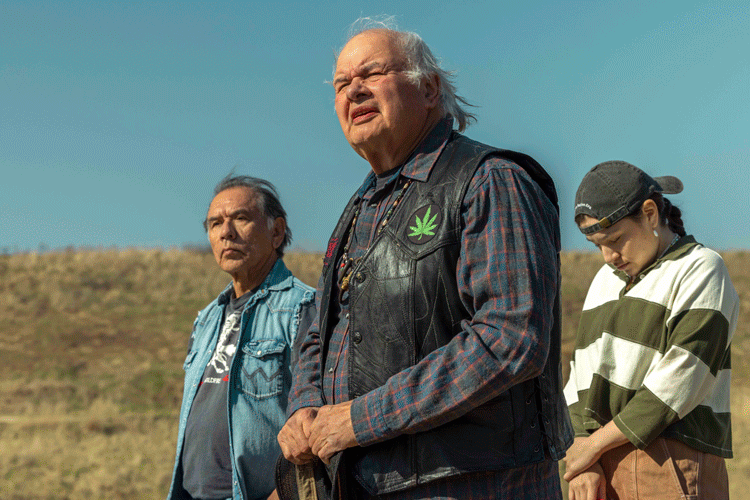Review: Shallow ‘Bordertown,’ from the Seth MacFarlane show factory, fails to sting
Into the newly reignited drama over the U.S.-Mexico border comes the animated series “Bordertown,” which Fox clearly hopes is seen as a stinging satire of inordinate timeliness.
Unfortunately, as created by “Family Guy’s” Mark Hentemann, it is just the latest model from executive producer Seth MacFarlane’s show factory, which continues to work almost exclusively in the medium of “Daddy’s a loud-mouthed moron.” (See also: “Family Guy,” “American Dad” and “The Cleveland Show.”)
Moronic fathers (and physically and/or mentally absent mothers) are, of course, a keystone of TV in general and TV animation in particular. From “The Flintstones,” a modern stone-age version of “The Honeymooners,” to “The Simpsons,” “classic” animated series invariably revolve around the foibles of dimwitted, often angry and bigoted but essentially good-hearted(!) men used, by their creators, as stand-ins for “real Americans.”
Join the conversation on Facebook >>
That angry bigots are rarely good-hearted does not seem to occur, nor does the notion that all Americans are “real” and more than half are female, though every Dumb Dad is invariably surrounded by a family/posse/foil there to represent the “less real” among us.
The Dumb Dad of “Bordertown” is such a real American his name is Bud. Voiced by Hank Azaria, Bud is a border guard in the fictional town of Mexifornia, where he and his family live next to Ernesto Gonzalez (Nicholas Gonzalez), a hard-working immigrant with a successful lawn and gardening business. While Bud says all the things Hentemann and his writers imagine anti-immigration supporters feel — that white men are the new servant class while immigrants have become “the Man” — Ernesto remains a model of tolerance toward Bud and his own son, J.C. (also voiced by Gonzalez), who, in a bid for equal opportunity satire, is as absurdly liberal as Bud is conservative.
“How can I get a job when there’s all this talk of a border wall?” J.C. says in the pilot. “Of course,” Ernesto replies. “You must wait until all the problems of the world are solved.”
SIGN UP for the free Essential Arts & Culture newsletter >>
The rest of the two families are equally constructed for maximum viewer familiarity. Bud has a more open-minded, and mostly absent, wife (Alex Borstein), a Honey Boo Boo like daughter (whose pet pig is the most lovable thing about “Bordertown”) and liberal yet strangely cowed daughter (also voiced by Borstein) who is in love with J.C. (cue some mildly misogynistic sex jokes).
Bud’s fury over their engagement fuels the pilot, while the second episode deals more directly with current events: The citizens of Mexifornia vote to construct an enormous wall (what a surprise!), with all sorts of predictable and only sporadically hilarious results. For reasons of their own, the writers chose to undermine the episode with a long-running alien-abduction rape joke.
More about exposing absurdity than changing minds, satire is often as angry and offensive as its subject (a joke about Bill Maher seems particularly pointed). But the best satire acknowledges the humanity of both its subject and its audience. “Bordertown” seems too caught up in its own suddenly timely cleverness to bother. Bud and Ernesto are each so one-dimensional that they seem caricatures not of the immigration issues but of a liberal, and very limited view, of the immigration issue. And that can’t be what Hentemann intended.
ALSO
‘Downton Abbey’ gears up for a grand old-fashioned finale as a new age dawns
Buying into Showtime’s new Wall Street drama, ‘Billions’
‘The Shannara Chronicles’ marks MTV’s big leap into fantasy
More to Read
The complete guide to home viewing
Get Screen Gab for everything about the TV shows and streaming movies everyone’s talking about.
You may occasionally receive promotional content from the Los Angeles Times.







